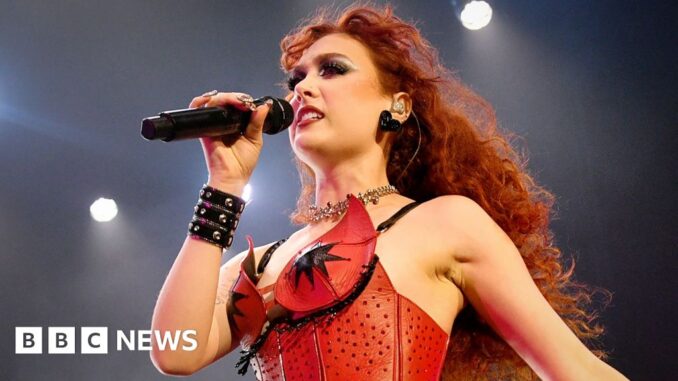
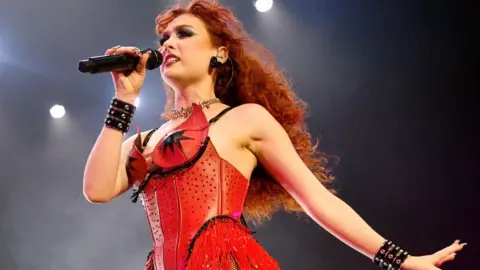 Getty Images
Getty ImagesIn just eight months, Chappell Roan has gone from being a relative unknown to suddenly topping charts as one of the biggest new pop stars on the planet.
But as the Missouri-born 26-year-old concludes a sold-out UK tour, the dark matter of mega-fame, and its invasive superfandom, threatens to cast a shadow over her success.
In August, she posted two TikToks, now collectively viewed over 30 million times, calling out the “creepy behaviour” she’s experienced and telling fans to respect her boundaries.
And on Instagram, she wrote “women don’t owe” anything, after one fan grabbed and kissed her in a bar. Elsewhere, police had to intervene when an autograph hunter wouldn’t take no for an answer.
This week, she went a step further, telling The Face magazine she “might quit” the music industry if the harassment towards her and those closest doesn’t subside.
Fame, she concluded, has the “vibe of an abusive ex-husband”.
Some see Roan’s comments – and similar remarks from other artists – as evidence that the relationships between stars and their fans is dramatically changing.
‘I can’t handle that responsibility’
Chappell Roan is the drag alter ego of Kayleigh Amstutz, and she has tried to keep the two identities separate.
Even with the stage persona, her authenticity is key to her appeal. But being relatable has drawbacks for a modern-day pop star.
“It’s such an interesting world we live in where everyone wants to see who you really are on social media. But there’s this delusion that they know you and that they can tell you anything,” she told Glamour magazine last year.
At meet-and-greets, LGBT fans dump their difficult coming-out experiences on her. “My music has helped a lot of people through that trauma, and I love that,” she added.
“But personally, as Kayleigh, I can’t handle that responsibility.”
Roan’s attempts to set boundaries and redefine modern-day fan-artist relationships have, unsurprisingly, led to a backlash.
On their podcast, Perez Hilton and Chris Booker supported Roan’s calls for more healthy fan relationships, but warned that her repetitive criticisms of fame – all while courting media attention – left her open to accusations of being a “sourpuss”.
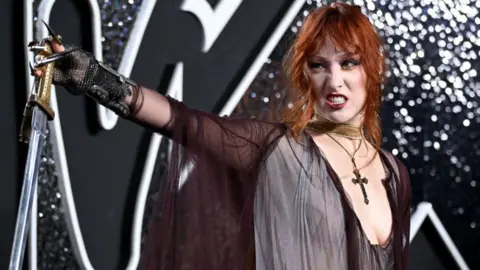 Getty Images
Getty ImagesOnline critics see Roan’s remarks as entitled, saying any negative sides to the attention are part and parcel of fame and fortune.
However, most fans support Roan. Lily Waite, a trans woman aged 29, tells BBC News she found the star’s openness groundbreaking and empowering, but understands her request for more considerate reactions.
“The majority of fans are wonderful and earnest and respectful, but those aren’t the fans she’s addressing or referring to in her videos asserting boundaries,” says Waite, who feels misogyny lies behind much of the backlash.
Rebecca Clark, 35, who identifies as queer, suggests Roan’s background in the drag/queer scene – which Clark argues is more understanding of mental health – has left her more “exposed on the worldwide stage”.
Still, Clark backs her, particularly as she challenges the superficiality of those only supporting star authenticity when it is positive. “She is self-aware enough to have seen what’s happened in the past to other pop stars and actively set a boundary for her fans.
“As the first massively out female pop star since Lady Gaga, she’s amazing. But again, that doesn’t mean she’s owes fans a personal one-on-one. She’s just a person too.”
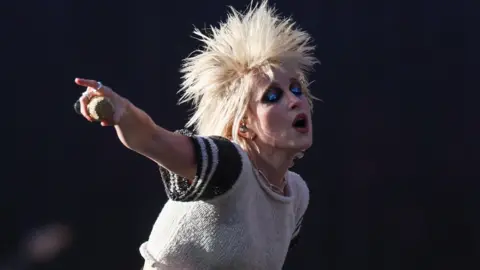 EPA
EPAIf Roan is making the most high-profile and perhaps intense attempt to impose boundaries, she is certainly not alone in speaking up.
Paramore singer Hayley Williams publicly backed the remarks. “This happens to every woman I know from this business, myself included,” she wrote. “Social media has made this worse. I’m really thankful Chappell is willing to address it in a real way, in real time. It’s brave and unfortunately necessary.”
Mitski welcomed her to “the club where strangers think you belong to them and they find and harass your family members”.
Indie band Muna also chastised “toxic” elements of their own fanbase, and Billie Eilish’s song The Diner similarly discussed being stalked.
For Sarah Ditum, author of Toxic, a book exploring female superstardom over recent decades, this year has marked “a tipping point” in celebs openly saying fans are crossing a line.
She believes it’s easier for this generation of stars to talk about because they’ve grown up with the language of mental health and boundaries as “pop culture has been reassessing the treatment of stars in the noughties” – in particular Britney Spears.
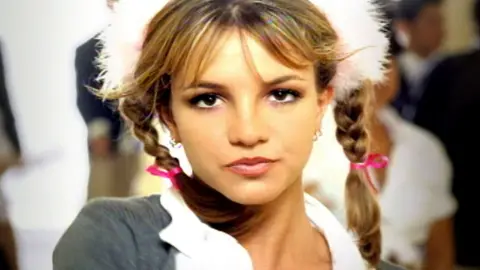 Alamy
AlamyAs the millennial pop princess, Spears’ arc serves as a warning to all who follow. She symbolises both the era’s exploitation – marketed to the masses as a teen sex kitten aged just 16 – and the shift in the pressures of fame brought about by a changing media.
Experiencing the height of fame in the pre-social media age, Spears’ tightly controlled career saw her suffocated by the paparazzi and male executives until a very public breakdown.
For Roan, the attention now comes from fans who, thanks to social media, can form parasocial relationships – the psychological term to describe the illusion of a friendship or bond with a star they’ve never met.
This makes fame particularly intense for this generation, says Ditum.
“In one sense, social media is an incredible power in their hands. They don’t have to go through a potentially hostile press and can speak direct to their audience on their own terms.
“But it also gives incredible power to the audience.”



Be the first to comment